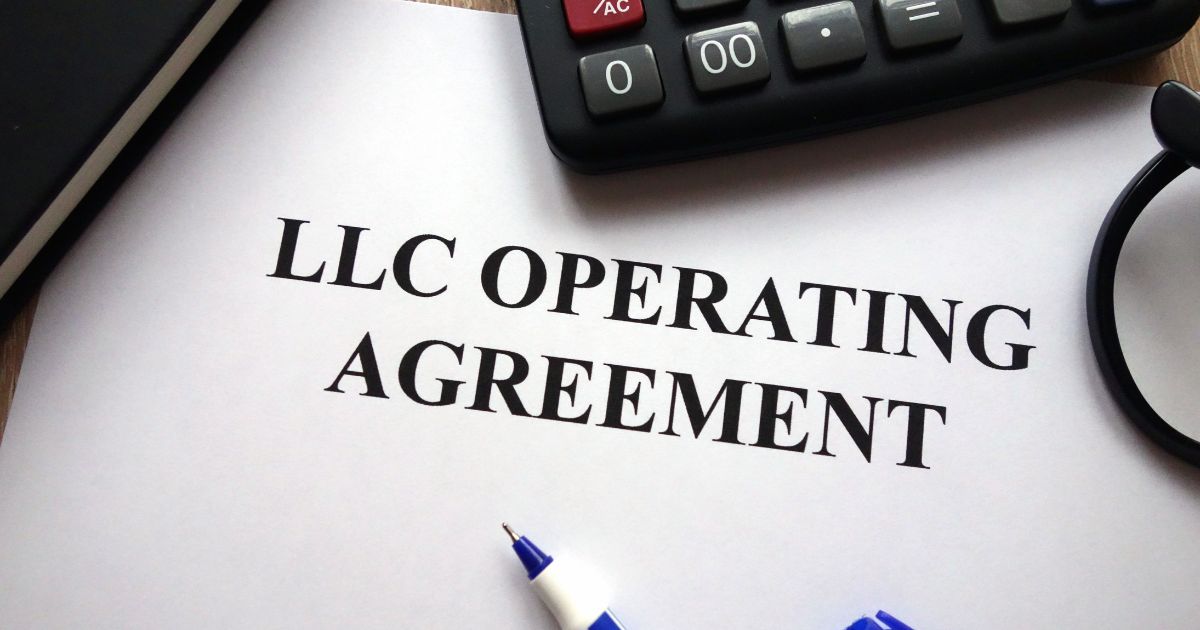Should I Start an LLC?

When starting a business, one question is bound to come up: “Should I start an LLC?” There are several advantages to setting up a business as an LLC (limited liability company), but it’s not the best move for every freelancer or entrepreneur. You must consider legal liability, ownership structure, potential tax advantages, and more.
What Is an LLC?
LLC stands for limited liability company. It’s the most common and streamlined business structure for those transitioning from sole proprietorship or general partnership.
There are several legal and financial benefits to organizing your business as an LLC. At the same time, there is more paperwork and administrative expenses to remain compliant with, making an LLC impractical for many freelancers and those only earning a side income.
Below are some top reasons to register your business as an LLC instead of a sole proprietorship.
You Want Legal Protection
For many, the most compelling reason to form an LLC is the enhanced legal protection to cover accidents, injuries, and financial hardship. In most disputes, being an LLC removes personal liability from lawsuits and financial hardships as only business assets are accessible.
If you do business as a sole proprietor or a general partnership, courts and creditors have a greater ability to come after your personal assets when there are insufficient business assets.
An LLC is particularly valuable if you work in a risky industry, have a lot of foot traffic, or own many business assets. For example, if you’re a wedding photographer who travels to different venues, you could become involved in an on-site accident or get sued if the newlyweds are unsatisfied with the final product.
Consider the following points to avoid financial surprises:
- Consider business liability insurance: It’s a good idea to carry business insurance for financial protection against property damage or injuries so you don’t have to rely on your cash reserves or ponder bankruptcy. Depending on your occupation, vendors may require proof of insurance before you can operate on their premises.
- Lenders can require personal guarantees: When getting a business loan or credit card, you will usually be required to provide a personal guarantee. This can expose your personal assets if the business cannot repay the debt. On a positive note, this guarantee makes qualifying for credit with limited business revenue or operating history easier.
- Piercing the corporate veil: Creditors can pursue your personal assets if they prove notable fraud and omissions in applying for business funding, mandatory corporate meetings and filings do not occur, or an owner demonstrates excessive control in defiance of the operating agreement.
You Want to Build a Business History
It can be easier to qualify for business loans, small business credit cards, or open a business checking account as an LLC. The primary reason is that it’s easier for lenders to confirm your business revenue history and current assets.
Further, having an LLC or a corporation designation adds authenticity to your brand with vendors and clients. For example, I once promoted products for a company that refused to work with sole proprietors.
Additionally, you may need to be an organized business for at least six to 12 months before you have sufficient business history to apply for financing.
You Have Multiple Owners
The LLC formation process involves drafting an operating agreement defining each co-owner’s roles and responsibilities. While these rules reduce flexibility in running a business, they can also prevent conflict that can threaten its success.
In this situation, you will form a multi-member LLC instead of a single-member LLC.
You Plan to Hire Employees
Registering as an LLC can be worthwhile if you decide to hire employees. Additionally, the IRS will require you to apply for an employer identification number (EIN) to add employees to the payroll. Business formation services such as Northwest Registered Agent can help you apply for this, although you can easily apply for free through the IRS.
Potential Tax Benefits
Contrary to popular belief, an LLC formation doesn’t automatically improve your tax treatment versus a sole proprietorship. Your organization functions as a pass-through entity when paying yourself as an LLC and you’re taxed within your personal income tax bracket.
However, an LLC has tax flexibility by filing as a corporation, allowing the business to pay a portion of the Medicare and Social Security taxes. Generally, this tax move makes sense when you earn at least $100,000. If that’s you, it’s worth consulting with your tax accountant to assess your situation.
Downsides of Starting an LLC
There are tradeoffs for the potential legal and financial LLC benefits. You should weigh the following drawbacks before deciding whether to start an LLC.
State LLC Fees Vary
Each state has unique LLC filing fees and documentation requirements. In most states, the filing fee is between $50 and $100, but it can be as high as $500 in some. Additional fees can also apply.
An LLC can be expensive when starting or earning an irregular income. You may also have to apply for an LLC in each state you physically operate.
✨ Related: How Much Does It Cost to Start an LLC?
Annual Compliance Requirements
To comply with state LLC requirements, you must submit certain documents each year. A business formation service like Northwest Registered Agent can assist with filing deadlines and updating the required documents.
Additionally, you need a registered agent to receive official correspondence and legal notices during regular business hours at a physical address. It’s possible to serve as your own registered agent, but many business owners outsource this task out of convenience and to protect their personal privacy.
An LLC Doesn’t Benefit Every Business
Not every freelancer, gig economy worker, or partnership benefits from the costs and paperwork requirements. Remaining a sole proprietor is better for simplifying your business model and enjoying fewer administrative burdens.
For instance, you may work online in a low-risk industry where LLC legal protection offers minimal benefits. However, it’s still worth carrying business insurance in many cases.
Becoming an LLC is not the only big decision you’ll need to make when you’re self-employed. Our ultimate freelancers guide shows you how to make money and set up a successful business.
How Soon Should You Start an LLC
Depending on the industry and your anticipated revenue, you may decide to organize an LLC as soon as you start a business. The peace of mind can be worth the expense and time commitment.
Here are some ways to know when it’s the right time:
- You need legal protection: LLC formation separates your business and personal assets from potential legal action resulting from most lawsuits, legal settlements, and business debt defaults. This “corporate veil” isn’t a luxury available to sole proprietors.
- You want business funding: Lenders and investors may determine your business history by reviewing your business bank account statements. Registering as an LLC helps you build credibility immediately as you work towards the income requirements to qualify for business term loans and revenue-based financing.
- Your cash flow exceeds formation expenses: Setting up an LLC and maintaining this status can be costly, but it can be worth it if your revenue far exceeds the filing costs.
How to Start an LLC
1. Choose a Business Name
Select a business name that you will use on all business-related documents. It must be available in your state, so have alternatives ready if your first pick is unavailable. Your business name should be unique to avoid a rejected application if it sounds too similar to existing organizations.
Northwest Registered Agent provides state-specific help during the LLC application process, including a business name search. You pay an affordable $39 plus your state’s filing fees. Further, Northwest offers 12 months of free registered agent service after successfully filing.
2. Submit Articles of Organization
Next, send your business Articles of Organization to your secretary of state to register your business. This document includes pertinent details, such as:
- Business name
- Physical business address
- Registered agent name and address
- LLC management structure
Your state may require additional documents or fees due now or shortly after application approval. For example, California requires you to pay an $800 franchise tax within the first four months and 15 days.
3. Complete an Operating Agreement
Your state government may not require you to have an operating agreement on file in their archives, but this is a necessary document to keep in your internal files. The Articles of Organization lay out the precise drafting and storage procedures.
This document specifies the responsibilities of each business owner, financial procedures, voting rights, and other vital details. In addition to adding credibility, a valid operating agreement helps provide legal protection.
4. Apply for an EIN and Business Bank Account
Getting an EIN is inexpensive and prevents putting your individual Social Security number (SSN) on sensitive documents. An EIN, designating a registered agent, and using a virtual mailbox are three of the best ways to protect your personal identity.
You will also have an easier time getting a business bank account or applying for credit cards and loans. Be sure to exclusively use this account to receive all payments or pay expenses to uphold legal liability protection.
5. File Annual Reports
Annual filings are due each year to renew your LLC status. Your registered agent is responsible for filing any necessary compliance documents. Their reminders can help you avoid late fees.
✨ Related: Northwest Registered Agent Review
Summary
The best time to start an LLC will differ for every business, but it’s a wise decision for anyone who needs legal protection or to comply with state business regulations. An LLC also adds credibility when qualifying for business financing.
That said, not every freelancer or solopreneur needs to become an LLC. If you primarily perform weekend side hustles, you likely won’t benefit from the increased legal protection or tax flexibility.
Other Posts You May Enjoy:
Do I Need a Business Bank Account
Most businesses should open a business checking account at formation or upon earning consistent revenue from a hobby. This allows…
8 Best Virtual Mailboxes
Are you a freelancer, digital nomad, or small business owner in need of a real street address you can use to receive mail? We cover 8 of the best virtual mailbox services in the U.S, including their key features, pricing, and pros and cons. Learn more.
Do I Need an LLC?
At some point, most business owners must ask themselves the question. Do I need an LLC? And there are situations in which you must form an LLC. However, other times it’s not necessary. We cover the various scenarios in this article. Learn more.
What Is a Registered Agent?
If you plan to form a corporation or a limited liability company (LLC), you will almost certainly need a registered agent. But what is a registered agent for an LLC, and who can be a registered agent? Learn more.

About Josh Patoka
After graduating in $50k with student loans in May 2008 from Virginia Military Institute with a B.A. International Studies and Political Science with a minor in Spanish (he studied abroad in Sevilla, Spain for 3 months), Josh decided to sell his soul for seven years by working in the transportation industry to get out of debt ASAP and focus on doing something else with a better work-life balance.
He is a father of three and has been writing about (almost) everything personal finance since 2015. You can also find him at his own blog Money Buffalo where he shares his personal experience of becoming debt-free (twice) and taking a 50%+ pay cut when he changed careers.
Today, Josh relishes the flexibility of being self-employed and debt-free and encourages others to pursue their dreams. Josh enjoys spending his free time reading books and spending time with his wife and three children.
Opinions expressed here are the author’s alone, not those of any bank or financial institution. This content has not been reviewed, approved or otherwise endorsed by any of these entities.




